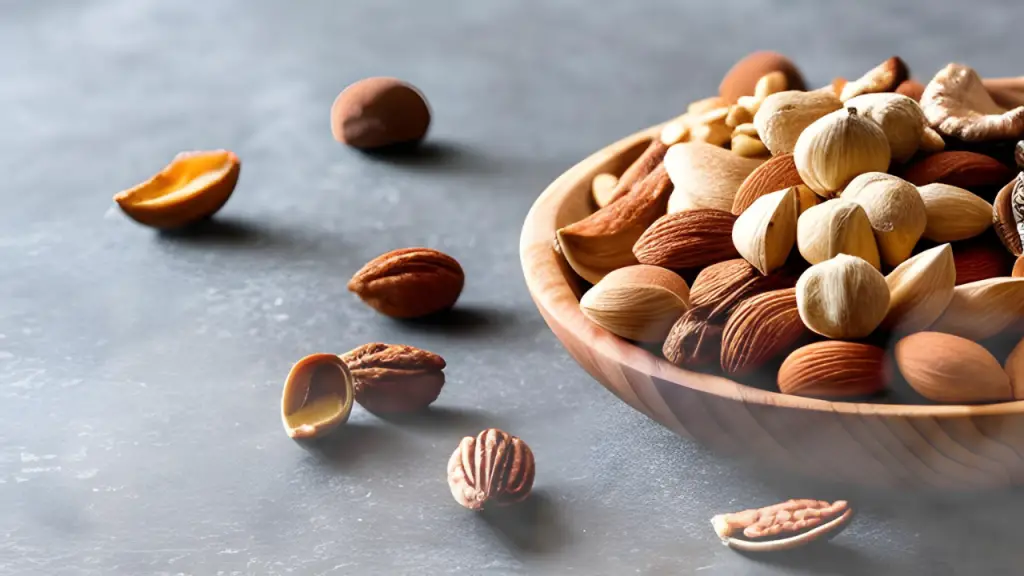
Are you a nut lover like me? Do you enjoy snacking on almonds, walnuts, pecans, or cashews? Nuts not only taste great but also offer numerous health benefits. However, storing them properly is important to enjoy their flavor and fully reap their nutritional advantages. In this article, we will explore effective techniques on how to store nuts for a longer shelf life, ensuring they remain fresh and tasty for an extended period.
To extend the shelf life of nuts, follow these storage guidelines:
- Store nuts in airtight containers to prevent moisture and air exposure.
- Keep nuts in a cool, dark place like a pantry or refrigerator, to slow down oxidation.
- Avoid storing nuts near strong-smelling foods to prevent flavor absorption.
- Freeze nuts for long-term storage, ensuring they are sealed tightly in freezer bags or containers.
- Check nuts periodically for signs of spoilage, such as off odors or rancidity.
By following these steps, you can maximize the freshness and longevity of your stored nuts.
Nuts are delicious and packed with essential nutrients such as healthy fats, fiber, vitamins, and minerals. To maintain their quality and taste, proper storage is crucial. Following a few simple guidelines, you can prolong the shelf life of your favorite nuts and enjoy them whenever you crave a nutritious snack.
Understanding the Shelf Life of Nuts
The shelf life of nuts varies depending on their type and storage conditions. While some nuts can last for several months, others may stay fresh for up to a year. However, it’s important to note that even with optimal storage, nuts may gradually lose flavor and texture over time.
Factors Affecting Nut Shelf Life
Several factors can affect the shelf life of nuts:
- Temperature: Nuts should be stored in a cool place to prevent them from going rancid. Exposure to high temperatures can accelerate the breakdown of oils present in nuts, leading to a shorter shelf life.
- Humidity: Moisture can cause nuts to become moldy or stale. It’s essential to keep them away from humid environments.
- Light: Exposure to light can promote oxidation and spoilage of nuts. Storing them in opaque containers or dark places can help preserve their quality.
- Oxygen and Moisture: Nuts are susceptible to rancidity caused by exposure to oxygen and moisture. Minimizing their contact with air and moisture can extend their shelf life.
Best Practices for Storing Nuts
To ensure your nuts stay fresh and flavorful, consider the following best practices:
Choosing the Right Container
Select airtight containers made of glass or BPA-free plastic to store your nuts. Mason jars or food-grade storage bags with zip-lock seals are excellent choices. These containers prevent air and moisture from entering and keep the nuts protected.
Controlling Temperature and Humidity
Store your nuts in a cool and dry place. Ideally, a temperature between 32°F and 50°F (0°C to 10°C) with a humidity level below 65% is recommended. Avoid storing them in the refrigerator as they can absorb odors from other foods.
Avoiding Exposure to Light
Light can degrade the quality of nuts over time. Keep them away from direct sunlight by storing them in a pantry or a cupboard. If you prefer storing them on a countertop, consider using opaque containers to block out light.
Protecting from Oxygen and Moisture
To prevent oxidation and moisture absorption, ensure the containers are tightly sealed. Using mason jars, use fresh canning lids to create an airtight seal. Alternatively, use vacuum-sealed bags to remove excess air.
Specific Storage Guidelines for Different Nuts
Different nuts have slightly different storage requirements due to variations in their oil content and susceptibility to rancidity. Here are some specific guidelines for popular nuts:
Almonds
- Store almonds in airtight containers in a cool and dark place.
- For longer shelf life, refrigeration is recommended.
- Almonds can stay fresh for up to 12 months when stored properly.
Walnuts
- Keep walnuts in airtight containers in a cool and dry area.
- Refrigeration or freezing is beneficial for maintaining their freshness.
- Properly stored walnuts can last up to 6 to 12 months.
Pecans
- Place pecans in airtight containers and store them in the refrigerator or freezer.
- They can retain their quality for up to 9 to 12 months when stored correctly.
Cashews
- Cashews should be stored in airtight containers in a cool and dry place.
- Refrigeration or freezing can help preserve their flavor and texture.
- When stored properly, cashews can last up to 6 to 12 months.
Signs of Spoiled Nuts
While proper storage can significantly extend the shelf life of nuts, it’s essential to be aware of signs indicating spoilage. Here are some signs that your nuts may have gone bad:
- Off Odor: If the nuts have a sour or rancid smell, it indicates spoilage.
- Mold or Discoloration: Moldy or discolored nuts should be discarded.
- Unpleasant Taste: Nuts that taste bitter, stale, or have an unusual flavor are likely spoiled.
- Texture Changes: If the nuts appear soft, rubbery, or have a strange texture, they are no longer fresh.
Conclusion
Properly storing nuts is key to preserving their taste and quality. By following the guidelines mentioned in this article, you can extend the shelf life of your favorite nuts and ensure they remain fresh for longer periods. Remember to choose suitable containers, control temperature and humidity, avoid exposure to light, and protect the nuts from oxygen and moisture.
FAQs
Can I store nuts in the refrigerator?
Yes, refrigeration can help prolong the shelf life of nuts. However, using airtight containers is vital to prevent them from absorbing odors from other foods.
How long can I store nuts in the freezer?
When stored in the freezer, nuts can retain freshness for up to one year or longer.
Can I store different types of nuts together?
It’s generally recommended to store different types of nuts separately to prevent cross-contamination of flavors and odors.
Are roasted nuts more susceptible to spoilage?
Roasted nuts have a shorter shelf life than raw nuts due to oxidation during the roasting process. It’s advisable to consume roasted nuts within a few months.
Can I use resealable plastic bags for storing nuts?
Resealable plastic bags can be used for short-term storage, but for long-term storage, it’s better to opt for airtight containers that provide better protection against moisture and oxidation.
In conclusion, storing nuts properly is essential for maintaining their freshness and flavor. Following the guidelines, you can enjoy your favorite nuts for an extended period, ensuring they are always delicious and nutritious.
